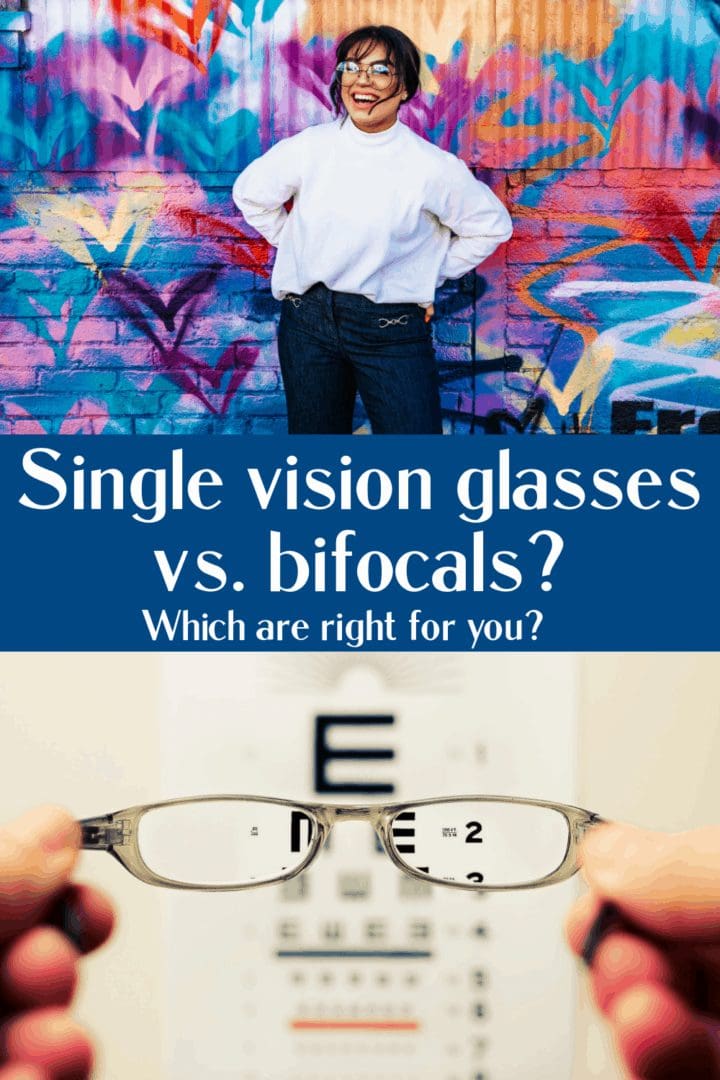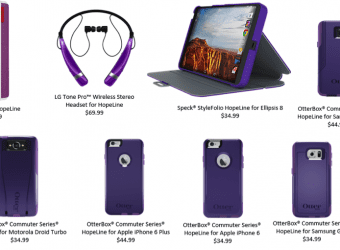Single vision glasses vs. bifocals. Which is right for you?
posted by Stacie on November 27, 2020
// Comments Off on Single vision glasses vs. bifocals. Which is right for you?
Single vision glasses vs. bifocals. Which is right for you?
As our eyes age, we may notice that our vision deteriorates gradually until we suddenly realize that we’ve reached the point where we need some help to keep doing the things we want to do. It’s time to consider which type of corrective eyewear is the best for our lifestyle. The most common age-related eye problem is presbyopia, which typically occurs after the age of 40. The eyes gradually lose their ability to focus on close objects. The good news is that this annoying and almost universal problem can easily be resolved by wearing prescription eyeglasses. We hope that you enjoy this Single vision glasses vs. bifocals. Which is right for you? post.

Single vision glasses vs. bifocals. Which is right for you?
However, if you already have additional deficiencies in your vision, the situation does become a little more complicated. For example, if you are myopic, are you going to carry two pairs of glasses with you wherever you go?
Eye Health Vision Benefits and Annual Eye Exams for Children
Maybe you wear one pair of glasses for driving, then have to take them off and replace them with others when you need to look at a map or your cell phone screen. Or, in a restaurant, you may be wearing your distance glasses to admire the view, then have to substitute them when it’s time to read the menu. It’s not only irritating and inconvenient – but on the occasion when you only have the ‘wrong’ glasses with you, you’ll be stuck – unable to read the GPS and having to ask someone else to select from the menu.
Luckily, you have several lens choices, which will all fit into your ideal frames: single vision, bifocals, and even a third possibility, progressive lenses. Let’s look at each one of these options in turn and consider the advantages and disadvantages.
Single vision glasses
Single-vision glasses are perfect if you only need to correct one aspect of your eyesight. If you have myopia, presbyopia, or astigmatism, single-vision glasses will have lenses with a prescription for the single optical correction required. The area of focus is spread evenly over the area of the lens. Single-vision glasses are typically used for reading, computer use, and any other close, detailed work. If you’re over 40 and have presbyopia, but your distance vision remains strong, they are effective and convenient in correcting your vision.
If you’re myopic, they’re a simple solution, enabling you to drive and watch movies or sports from a distance. They are often less expensive than bifocals and progressive options. If you spend a lot of time at your computer screen, you may consider adding a blue-light filter to reduce strain on the eyes, and, it is claimed, help you to sleep.
Bifocals
Bifocal lenses have two separate strengths, in the same frame: one for close vision and one for distance. There is often a distinct line between them, which some people consider makes them less attractive visually. However, if you have two aspects of your vision that need correcting, an advantage of bifocals is that you won’t need to carry two pairs of glasses at all times and to constantly switch between them.
One downside is that there is a risk that the bifocals wearer who uses computers for extended periods may develop computer vision syndrome. As well as headaches and neck or shoulder strain, CVS can result in tired, red, or sore eyes as well as blurred or even double vision. While wearing glasses at your screen will not cause any deterioration in your eyes, it may be worth speaking to your ophthalmologist about whether specialized computer glasses may be appropriate for your needs. In the meantime, practice good self-care. Ensure that you take regular eye breaks from your screen: if necessary set an alarm to go off every 10 or 15 minutes so you look away from the screen, into the distance, and give your eyes a break.
Progressive lens glasses
These are a very acceptable alternative to bifocals for those with more than one aspect of their vision to correct. Over the past few years, with their increasing popularity, especially for those with presbyopia, advances in technology have ensured that glasses with progressive lenses provide a great overall solution and can be used in a wide variety of situations.
The first advantage over bifocals is that there is no line separating the different strengths of the lens, so the transition is seamless and the appearance of the glasses is more visually appealing. In addition, due to the wider intermediate area of the lenses, computer users benefit from improved vision and a reduced risk of CVS. The main disadvantages are that it does take longer to get used to them, and they are typically more expensive than bifocals. We hope that this Single vision glasses vs. bifocals. Which is right for you? post inspires you. Good luck!
Comments Off on Single vision glasses vs. bifocals. Which is right for you?





